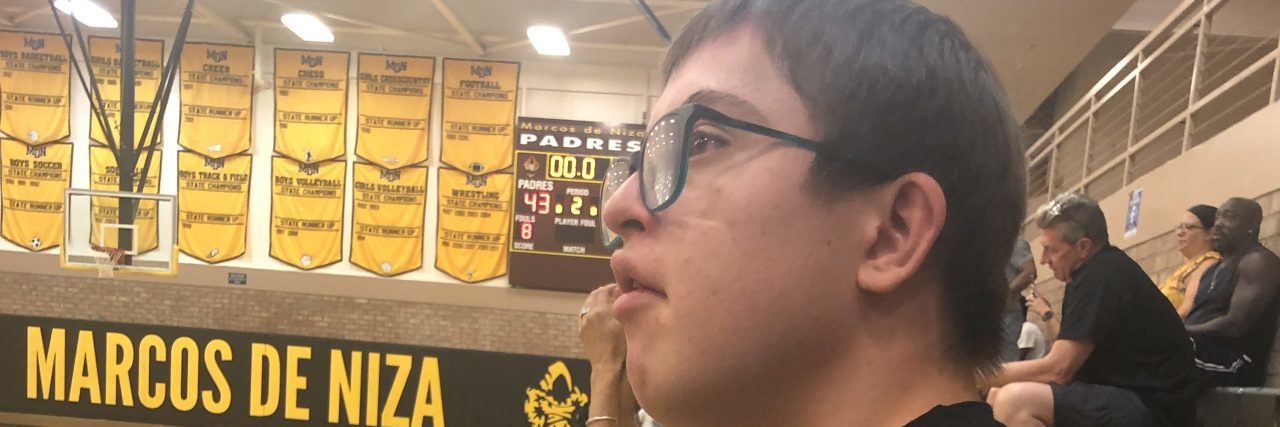Recently, I went to a high school basketball game with my son George who has Down syndrome. George had recently participated in a school summer basketball camp with some of the kids on his high school team and he came to cheer them on in their game. As we watched, I asked him the players’ names and he had a hard time telling me who they were. It was funny to me that he couldn’t tell me their names because he had just spent three weeks in a camp with them. He had gone to school with a few of the kids for many years. And he is able to name everyone in his disability summer camp class.
Then I asked George the name of one exceptionally friendly player. I had witnessed this kid exuberantly greeting George and even me. He was confident in himself and wasn’t afraid to greet my son with a cheerful “Hey! What’s up, George?” George definitely knew this was Isaac* and stated that Isaac was a Los Angeles Lakers fan. George cheered just a little bit louder whenever Isaac scored. Not surprisingly, Isaac must have taken the time to not only greet George, but also engage in a conversation about NBA teams. Observing this, made me wonder, why do so many conversations with my son’s peers never get past the “Hello, George” or worse, the “Hello, Buddy” stage?
Conversations with George take longer because he is difficult to understand. He is verbal, but he takes a little more time to form his thoughts and occasionally stutters. However, he has things to say. He can talk NBA and NFL teams with detailed statistical accuracy.
George has also worked in speech therapy to have two-way conversations by asking questions back to people. He’s been encouraged to ask, “And you? Or how about you?” We’ve coached George on conversation suggestions. Tell _______ he had a great game. Ask ________ about his weekend.
Of course, there are several kids (and adults) who don’t even bother to say “Hi” and look the other way when George walks by. I’m thankful for those kids who aren’t afraid to give a friendly greeting. I’m especially grateful for those few who take the next step and are willing to engage in deeper conversations to get past “Hi, Buddy.”
* Names have been changed in this story

